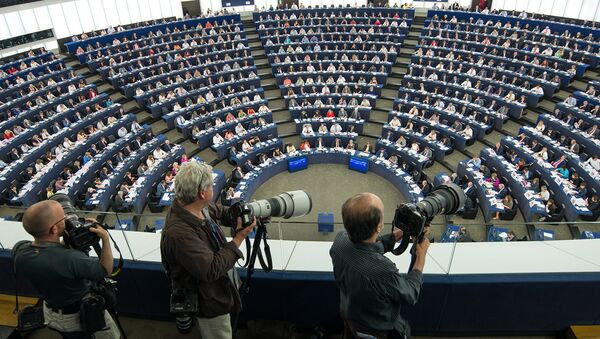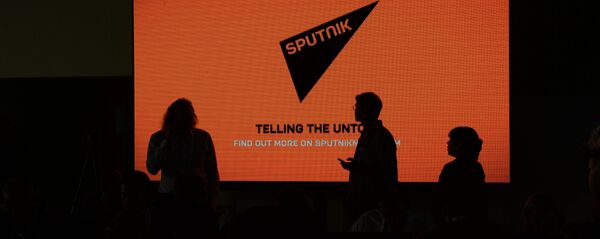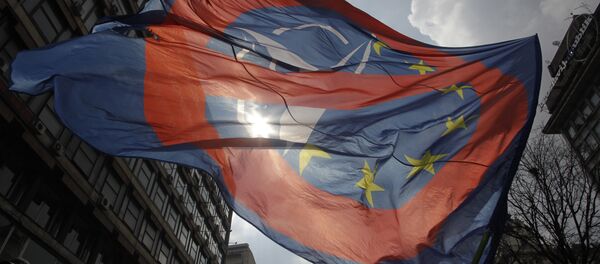The resolution, which was proposed by Polish lawmaker Anna Fotyga, equates news from Russian outlets such as Sputnik and RT, with propaganda from Daesh, Al-Qaeda and other violent jihadi terrorist groups. It was approved by 304 votes to 179, with 208 abstentions.
In order to counter this so-called "propaganda pressure," the resolution proposes to reinforce the EU's "tiny 'strategic communication' task force" with up to one million euros ($1.06 million) to carry out media campaigns.
Serbian filmmaker Emir Kusturica told Sputnik Srbija that the EU is choosing to deflect attention from its policy mistakes, including the support of Middle Eastern interventions, by blaming its problems on Russian "propaganda."
"I think accusing Sputnik and RT of propaganda is like Pinocchio calling his creator a liar. I say that because the idea of equating two young and quality media outlets with ISIS (Daesh) is missing a crucial part: who actually formed the Islamic State – the West, East or is it a self-sufficient organization," Kusturica told Sputnik.
Kusturica said the resolution is a result of panic in the EU establishment after Donald Trump beat Hillary Clinton to the US presidency. The EU's support for Clinton, whose dishonesty is well-documented, is just one area which belies the EU's professed opposition to "disinformation campaigns."
"Placing ISIS (Daesh), RT and Sputnik in the same category? If there wasn't that confusion and panic which has occurred after changing the boss, after the presidential elections in the US, which is obviously now going to behave differently, then I might be able to accept their idea that they are genuinely against somebody who is telling the truth."
"The truth is propaganda when somebody is fighting in war for the truth, but for geopolitical reasons it is not accepted. The panic began because two establishments did not agree – the new American one, which is in its infancy, and the one controlled by Clinton and Soros. I think the situation will have to correct itself in the future, because the truth is rarely propaganda," Kusturica said.
"Those who helped to create "Radio Free Europe" with the sole purpose of influencing and realizing political goals, and who have admitted investing hundreds of millions of euros in the media in different countries, are now accusing Russia (of propaganda), even though the scale of what they are doing is not comparable," Dmitrovic said.
"They don't want anybody to hear Russia's position, or for there to be a contrary opinion. Those who are financing the media in Europe, and in Serbia, are scared of Russian influence. All this shows the weakness and fragility of what we call the strictly ordered international community and the EU," Dmitrovic said.
"I'm not saying I'm pleased about the expansion of Russian media influence, but I am pleased that Russia, which a just few years ago hadn't shown any initiative in this area, has now got down to business and seems to be working well and destroying the monolith of lies which existed until a short time ago in America and Europe. If the EU is scared of another opinion, it is the beginning of the end of this system."




